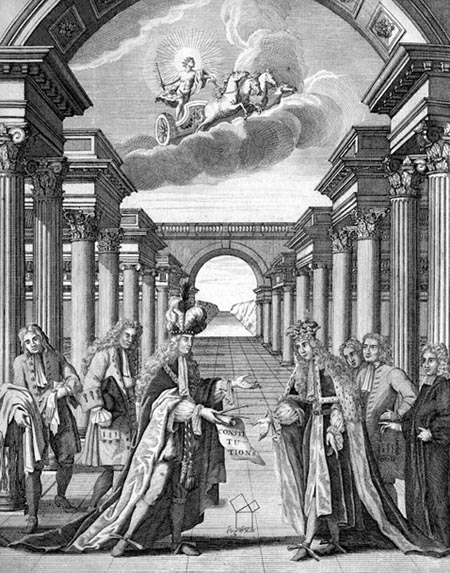Pope Francis, the 266th Pope of the Roman Catholic Church, has been a subject of admiration and controversy since his election in 2013. Known for his progressive stances on social issues, interfaith dialogue, and environmental concerns, he has redefined the role of the papacy in the modern world. His leadership style, marked by humility and accessibility, has earned him a global following beyond the confines of the Catholic Church.
One topic that often arises in discussions about Pope Francis is his alleged connection to Freemasonry. This claim, rooted in conspiracy theories and misinformation, has sparked debates within both religious and secular circles. As we delve into this controversial subject, it's essential to separate fact from fiction and understand the historical context surrounding the Catholic Church's stance on Freemasonry. Let us explore the truth behind these claims and shed light on the complex relationship between Pope Francis and Freemasonry.
Grand Lodge of Italy Honors Pope Francis
The Grand Lodge of Italy of the Ancient, Free, and Accepted Masons expressed their condolences upon the passing of Pope Francis, acknowledging him as a kindred spirit. This statement reflects a mutual respect between the two organizations, despite their historical differences. The Grand Lodge appreciated Francis's vision of inclusivity and reform, which resonated with their own values of enlightenment and progress.
While such tributes are rare, they highlight the evolving dynamics between the Catholic Church and Freemasonry. The acknowledgment by the Grand Lodge signifies a recognition of Francis's efforts to bridge divides and foster understanding among diverse groups. It also underscores the changing attitudes within certain Masonic circles towards the Catholic Church.
This gesture from the Grand Lodge invites further dialogue and cooperation between these historically adversarial entities. By honoring Pope Francis, they acknowledge his contributions to promoting peace, justice, and human dignity, aligning with principles shared by many Freemasons.
Clarifying Misunderstandings About Papal Involvement
Conspiracy theories suggesting that Pope Francis was affiliated with Freemasonry have circulated in certain circles. These claims often stem from misunderstandings or deliberate misinformation. The reality is that the Catholic Church maintains its longstanding prohibition against membership in Freemasonry, a position reaffirmed during Francis's papacy.
In response to queries regarding this issue, official church documents emphasize that Catholics cannot belong to Masonic organizations due to doctrinal and moral conflicts. Pope Francis himself has spoken out against Freemasonry, warning of its potential influence on church affairs. His warnings serve as a reminder of the church's commitment to preserving its teachings and traditions.
Despite these clarifications, rumors persist, fueled by those who seek to discredit the pope or exploit divisions within the church. It is crucial for believers and non-believers alike to approach such claims critically, relying on credible sources and official statements from the Vatican.
Historical Perspective on Church-Masonic Relations
The Catholic Church's opposition to Freemasonry dates back centuries, beginning with Pope Clement XII's condemnation in 1738. Since then, numerous popes have issued decrees reinforcing this prohibition, citing ideological inconsistencies and perceived threats to church authority. Pope Francis continues this tradition, upholding the church's stance while encouraging respectful engagement with all sectors of society.
Throughout history, various popes have addressed allegations linking them to Freemasonry. For instance, accusations against Pope Paul VI emerged in traditionalist circles but were debunked by scholars and historians. Such baseless claims underscore the importance of critical thinking when evaluating historical narratives.
Today, as the Catholic Church navigates an increasingly pluralistic world, it remains vigilant against influences that could undermine its mission. At the same time, Pope Francis advocates for constructive dialogue with different faiths and philosophies, demonstrating that opposing positions can coexist respectfully within broader conversations about humanity's shared future.
Church Doctrine Reinforces Prohibition
A recent document signed by Pope Francis and Cardinal Victor Fernández, Prefect of the Congregation for the Doctrine of the Faith (CDF), reiterated the church's ban on Freemasonry. This clarification came in response to inquiries from a bishop in the Philippines seeking guidance on the matter. The document emphasized the enduring nature of the prohibition, rooted in theological and ethical considerations.
By reaffirming this doctrine, Pope Francis ensures continuity with past teachings while addressing contemporary challenges. The CDF's involvement highlights the seriousness with which the church views this issue, ensuring that all members understand their responsibilities in adhering to church law.
This reaffirmation serves as a reminder of the church's core values and commitments. It calls upon Catholics worldwide to uphold their faith faithfully, avoiding entanglements with organizations whose principles conflict with church teachings. Through such measures, the church seeks to maintain its integrity and focus on its spiritual mission.
Understanding Freemasonry's Impact
Pope Francis has consistently warned about the dangers of secret societies like Freemasonry, cautioning against their potential influence within the church hierarchy. During a 2013 in-flight press conference, he spoke candidly about the need for vigilance against hidden powers seeking to manipulate church structures for personal gain.
His remarks reflect a broader concern about transparency and accountability within ecclesiastical institutions. By highlighting the risks posed by secretive organizations, Pope Francis reinforces the importance of openness and honesty in all aspects of church governance. This emphasis on integrity aligns with his overall vision for reforming the Vatican bureaucracy.
As the church continues to grapple with internal reforms, Pope Francis's stance on Freemasonry underscores his commitment to safeguarding its spiritual essence. His leadership exemplifies a balanced approach, combining firm adherence to doctrine with compassionate outreach to those outside the fold.

